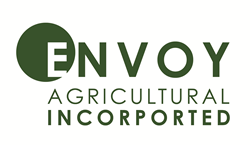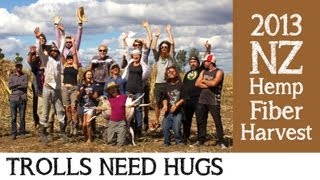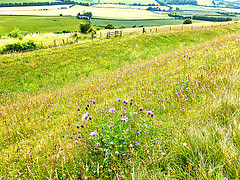Organic Farming is at a Crossroads
Organic, holistic, natural, back to the earth, and homesteading, are all disciplines of agriculture that are growing in popularity each day. People all over the world are extremely concerned about our environment especially as how it relates as to what we put into our bodies and also how it affects our earth and our lives.
Agribusiness and the multinational food producers over the years have done an excellent job of providing substantial amounts of nutritious food for a growing world population, but is this scenario of farming sustainable? Currently there is a tremendous amount of debate between organic farmers and conventional farmers who are looking for common answers to this question.
Organic farming largely excludes the exclusive use of synthetic fertilizers and pesticides, plant growth regulators, and livestock feed additives. Organic farmers rely on crop rotation, crop residues, animal manure and mechanical cultivation to maintain the soil and to control weeds, insects and other pests.
In many countries including the United States, China and most of Europe; organic farming is defined by law, so that the commercial use of the term “organic” is regulated by the government.
Organic farming began as a reaction against the industrialization of agriculture in the early 20th century. Research produced hybrid seeds, fields grew in size and cropping became specialized to make efficient use of machinery, irrigation, fertilization and the use of pesticides. Nitrates which were used during World War II as munitions became an abundant and cheap source of nitrogen. In 1972, the International Federation of Organic Agriculture Movements (IFOAM); was founded in Versailles, France. IFOAM is dedicated to educating the public on the principles and practices of organic agriculture across national and language boundaries.
The retail market for organic farming in developing economies has grown at about 20% annually due to increasing consumer demand. While most of the early producers were small, the popularity of organic food is rising as the volume and variety of organic products become available at an increasingly larger scale.
Enhancing and maintaining soil health is the mainstay of organic farming. Many methods are employed including crop rotation, green manure, cover cropping, application of compost and mulching, Organic farmers also use certain fertilizers such as seed meal and mineral powders such as rock phosphate and greensand which are naturally occurring forms of potash.
Organic pest control allows for an acceptable amount of pest damage, it encourages or introduces beneficial organisms, utilizes careful crop selection and crop rotation and mechanical, thermal and mulch controls for weeds. Organic pesticides; which are usually derived from plants and not chemicals, allow for the use of natural methods of protection.
A major point of contention is the use of genetically modified organisms (GMO), human growth hormones (HGH), sewage sludge and antibiotics in the production of our food supply.
Opponents claim that the impact of genetic engineering on food quality and plant and animal health is not yet fully understood, although evidence is starting to show that GM food has a seriously negative effect on test animal reproductive organs. Proponents argue that genetic engineering is vital to create higher volumes of produce in the fight to end world hunger without requiring additional land. Often forgotten in this debate, is the fact that genetic engineering is a technique, also known as selective breeding; that has been used for thousands of years, and has done much good for mankind.
The pro-organic point of view regarding the environment in is that conventional agriculture is depleting our natural resources such as soil, fossil fuels and fresh water and is seriously polluting the air, soil and water. The large quantities of agricultural chemicals, water wastage through high-volume irrigation and the heavy use of fuels for the farm machinery and long-distance transport are some of their arguments. On the other hand an organic farm using natural compost and manure on a large-scale may cause as much damage to groundwater and soil as does manufactured fertilizers.
Conventional farming allows farmers to precisely apply only the necessary fertilizers to the soil in order to minimize waste pollutants. Organic farmers on the other hand do not have that option because they depend on fertilizers such as manure which contains fixed amounts of various elements which cannot be adjusted. The most common problem is over application of these organic fertilizers because of their relative lack of potency. These over applications can very easily lead to pollution of the water supply.
The quality of organic food versus conventionally grown food is also extremely debatable and is being studied by various governments with no conclusive evidence either way. One critical exception to this are studies that show that infants, who are exposed to pesticide exposure during the first two years of their lifetime had a 50 percent of chance of developing risk cancer and had their risk levels drop dramatically when they switched to an organic diet. This explains the growing sales of organic baby food because parents know that their infants are especially vulnerable to potentially dangerous food.
Organic farming is at a crossroads. Even though there are laws that ensure that the playing field be level for producers and consumers, these laws have been found to be full of loopholes that have led to serious charges being leveled against the major certifiers in our government such as the FDA and the USDA as well as agribusiness corporations.
Can agribusiness convert to large scale organic farming and still be able to make a profit without raising the consumer cost to unacceptable levels?
The current food distribution system favors high volume production with large farming corporate operations and cannot be easily altered. What we know as organic farming may change very dramatically in the coming years. A growing consumer market is normally one of the main factors encouraging conventional farmers to convert to organic agricultural production methods. I believe this trend will continue.
While this debate goes on, home gardeners are making their own decisions regarding this debate by doing the sensible thing; growing their own foodstuffs. The Green revolution is more than a slogan. It has become a way of life for those who are choosing to join in to make this world a better place to live.
Dick Murray is a retired urbanite who has kept his passion for gardening alive with the creation of an informational web site http://www.vegetablegrowingbasics.com/
Related Hemp Farming Articles






